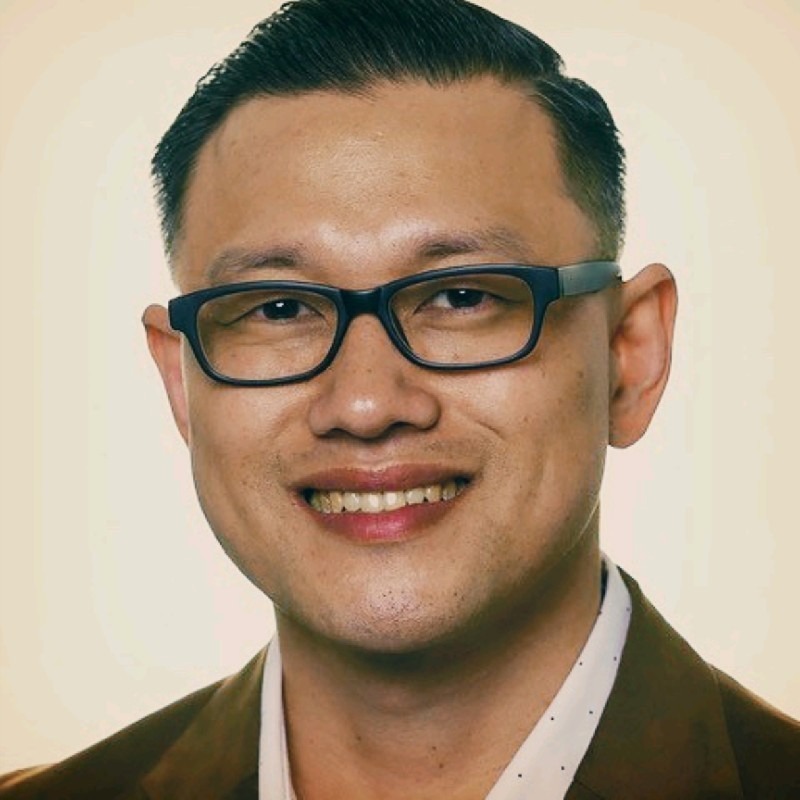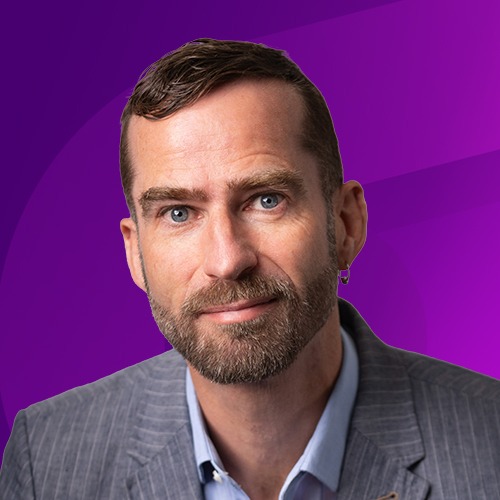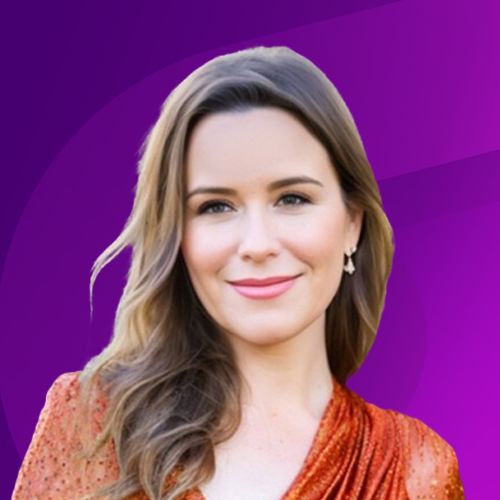As the business landscape continues to rapidly evolve, organizations are realizing the necessity of implementing a robust Risk and Resilience strategy. To showcase exemplary resilience during a time of unprecedented disruption, iluminr has created the Gamechangers in Resilience interview series, featuring leaders all over the world who have helped their organizations and clients demonstrate exceptional adaptability.
Hee-Won Yoon’s transformative journey from the Marine Corps to business resiliency at PenFed Credit Union embodies the principle of unleashing brilliance in the basics. Having spent 25 years in the military, Hee-Won learned the power of mastering fundamental principles and leveraging them for growth. Today, he brings this mindset to the financial sector, seamlessly connecting strategic and operational aspects while empowering his team to embrace foundational elements and excel. Hee-Won’s unwavering commitment to continuous improvement and resilience reminds us that true brilliance lies in perfecting the basics, enabling us to overcome any challenge and thrive.
In a recent interview, iluminr delved into Hee-won’s transformative journey as a gamechanger in the realm of business resilience.

Hee-Won Yoon, Program Manager, Enterprise Business Resiliency, PenFed
Q: How did you get started in Business Resiliency?
Hee-Won: After dedicating 25 years of service to the Marine Corps, I found an opportunity to enter the field of Business Resiliency, leveraging versatile skillsets acquired during my military tenure. One of my strengths lay in seamlessly integrating continuity requirements into daily operations, making my experience highly applicable and transferable. Before retiring from active duty in 2022, I was presented with the opportunity to join PenFed Credit Union as a Program Manager for their Enterprise Business Resiliency Management team.
Q: Given your experience at PenFed, can you share what you believe is the most important factor in building a resilient and adaptive culture within an organization?
Hee-Won: This is a great question because building a resilient and adaptive culture within an organization is crucial for success. The most important factor in achieving this is securing executive leadership buy-in.
It all starts with gaining their trust and confidence by presenting a vision that aligns with strategic objectives.
This buy-in not only entails a willingness to embrace a certain level of risk but also leads to sponsorship, where leaders actively advocate for a cause or even an individual. When leaders at all levels are aligned and share a vision, contagious positivity permeates the organization. This creates a culture characterized by openness, respect, and creativity, ultimately fostering increased collaboration and innovation.
Q: How do you work with different departments or teams within your organization to develop and implement operational resilience strategies?
Hee-Won: Having transitioned from the military, I have learned the importance of unlearning the rigid chain of command and prioritizing approachability and positive relationships. At PenFed, we have a diverse workforce that allows for cross-functional collaboration, which I greatly value. I emphasize the importance of relationships, fostering an environment where open communication, idea-sharing, and continuous learning thrive. Age gaps and diverse backgrounds don’t hinder my eagerness to understand and value every team member’s thoughts and perspective, as I believe everyone has valuable insights to offer, regardless of their experience or position.
Q: How do you strike a balance between meeting regulatory requirements and fostering innovation and growth within an organization?
Hee-Won: Striking a balance between meeting regulatory requirements and fostering innovation and growth is indeed a delicate task. The key lies in mastering the brilliance in the basics and establishing a strong foundation. Understanding the logical flow and interdependencies of different areas and processes is essential. As a leader, I believe in continuous learning and having a broad understanding of various roles within the organization.
While I focus on mastering my own expertise, I also strive to be knowledgeable enough about other fields to be effective and enable collaboration.
By cultivating relationships, creating a culture of purpose, and providing a clear pathway to success, we can align regulatory compliance with innovation and growth. It is important to strike a synthesis and synchronization among different departments and entities within the organization, enabling seamless operation and adaptation as the organization grows and becomes more complex.
Q: What do you think are some of the biggest challenges facing businesses today in terms of risk management and resilience, and how do you recommend organizations proactively prepare for these challenges?
Hee-Won: From my perspective, one of the biggest challenges facing businesses in terms of risk management and resilience is the emergence of AI and machine learning technologies. While these technologies offer immense opportunities, they also introduce new risks and complexities that organizations must address. It is further exacerbated by additional complexities that accompany typical organizational growth, such as resource maturity and business diversification. To proactively prepare for these challenges, organizations should be implementing robust governance frameworks, ensuring data security and privacy, promoting continuous learning through both formal education and awareness initiatives, and actively monitoring and adapting to AI advancements. Only then can they effectively navigate the risks and leverage the benefits of AI for enhanced resilience.
Q: How have you leveraged technology and data analytics in your work with business continuity and resilience planning, and what benefits have you seen from those efforts?
Hee-Won: While my team is currently undergoing a major technological revamp, we anticipate numerous benefits. By leveraging data analytics, we can potentially uncover valuable insights such as hidden patterns and trends, enabling informed decision-making and enhancing our overall resilience. This approach is expected to deliver benefits such as faster situational awareness, improved adaptability, and enhanced responsiveness. Additionally, utilizing the right technology platform helps us unlearn rigid practices and embrace modernized methodologies like automation, further strengthening our organizational and operational resiliency.
Q: Are there any mentors or influential figures in your career journey who have played a significant role in shaping your approach to business continuity and resilience? If so, how have they influenced you?
Hee-Won: While I draw inspiration from various sources, there are a few individuals who stand out to me. One person who immediately comes to mind is my third brother-in-law (I have three older sisters). Observing his leadership abilities, both inside and outside of his home, and his journey from humble beginnings to where he is now professionally has been truly inspiring.
Additionally, I have a retired Marine buddy, whom I consider my fellow Marine brother. We joined the Marine Corps around the same time, and our cultural compatibility as Korean Americans strengthened our bond. I had the opportunity to witness his career evolution and how he strategically navigated his path within the Marine Corps. Observing his posture, strategies, and career maximization techniques provided valuable insights that I could apply in my own journey. Our relationship was built on a foundation of friendly competition, where we shared information and motivated each other to excel.
Surrounding myself with high-caliber individuals who challenge me and vice versa has been instrumental in enhancing my approach to business continuity and resilience, and the collaborative atmosphere and continuous growth have become second nature to me.
Q: What advice would you give to someone who is just starting their career in business continuity and resilience, and what qualities do you believe are essential for success in this field?
Hee-Won: To someone starting their career in business continuity and resilience, I would emphasize the importance of prioritizing the fundamentals. Invest in self-study, pursue certifications, and actively engage with the professional community.
Achieving “brilliance in the basics” is the key to building confidence and paving the way for success.
In addition to technical knowledge, qualities such as adaptability, strong communication skills, and a commitment to continuous learning are essential in this field. By embodying these qualities and continually striving to improve, one can navigate the dynamic landscape of business continuity and resilience successfully.
Q: What is the leadership playbook you are writing for yourself in real-time?
Hee-Won: My leadership playbook is based on a multi-faceted approach. The goal is to be as well-rounded as possible, both personally and professionally. By adopting this methodology, I experienced a long and successful military career, with a key factor being the harmonization of Marine Corps principles with my family’s priorities. This involved aligning my values and incorporating leadership aspects into various areas of my life.
To establish a strong foundation for my playbook, I focused on ensuring sustainability through continuous adjustments as part of an iterative process. This approach fostered a mutually beneficial relationship between my personal and professional life, allowing me to cultivate my leadership skills, both tangible and intangible. By remaining steadfast to my core values, I consistently made sound decisions and took actions that shaped my growth and development in both my career and personal life.
The positive impact of this playbook manifested in my ability to lead effectively during my military service and now as a leader in the corporate world, specializing in resilience. It’s worth noting that this playbook is more of a living and breathing document that will continue to be updated for many years to come, even into my full retirement.
Q: How do you apply the lessons of Resilience in your own life?
Hee-Won: Resilience is a vital aspect of both my personal and professional life. I apply the lessons of resilience by promoting a “wash, rinse, repeat” mentality, similar to managing a resiliency program, at work and at home.
At work, I always keep the “big picture” or overall intent in mind, similar to understanding strategic goals and objectives. I constantly assess risks, monitor situations, respond to issues, implement new strategies, execute plans, and evaluate my decisions on a daily basis. By adopting a proactive approach, I strive to instill a resilient mindset in my team and foster a culture of adaptability.
As a husband and father, I also apply resilience in managing my family life. I assess risks, communicate effectively, adapt to challenges, and constantly evaluate our decisions and actions to ensure we stay aligned with our belief systems. I strive to maintain open lines of communication, problem-solving abilities, and a collaborative partnership with my wife and two teenage children.
Overall, resilience is deeply ingrained in my approach to life, allowing me to navigate both personal and professional challenges with confidence and adaptability.














